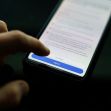Last October, California Governor Gavin Newsom signed a law that will punish doctors who display “unprofessional conduct, by spreading “misinformation or disinformation” when treating COVID-19 patients. It is no surprise that physicians throughout the state strenuously objected to what they called “censorship.” One federal judge halted the law in January, but another U.S. district court judge refused to block it. As a result of the conflicting rulings, the law is now in what the Los Angeles Times called “legal limbo.”
California Assembly Bill 2098, authored by Assemblymembers Evan Low and Cecilia M. Aguiiar-Curry, amended a section of California’s Business and Professions Code for practitioners of “healing arts.” Newsom signed the bill on September 30, 2022. It defines “misinformation” as “false information that is contradicted by contemporary scientific consensus contrary to the standard of care.” It explains that those who are unvaccinated are 11 times more likely to die than those who have received their shots and says the Food and Drug Administration has confirmed the safety and efficacy of vaccines.
AB 2098 also disparages media misinformation that “has weakened public confidence” in the vaccines and concludes by stating that the Federation of State Medical Boards has “warned that physicians who engage in the dissemination of COVID-19 vaccine misinformation or disinformation risk losing their medical licenses.
Two lawsuits, filed by California doctors and private physicians’ organizations, challenged the law, claiming it violated the free speech of healthcare providers and was too vague to properly inform them about what they could and could not tell their patients.
On January 5, United States District Judge William H. Shubb from the Eastern District of California blocked the law after reviewing and approving claims by five different doctors and a number of physician’s organizations. He granted them a preliminary injunction to stop California from enforcing AB 2098. He said plaintiffs had “established a likelihood of success on the merits” because AB2098 violates the U.S. Constitution.
Shubb said the statute provides no clarity about what “contemporary scientific consensus” means. It does not explain who would determine whether a consensus exists, what would constitute one, what geographic areas it would cover, and what level of agreement it signifies. He said it did not clarify when and who establishes a consensus and what sources are used in determining that one exists.
The district judge’s ruling clashed with that of U.S. District Judge Fred Slaughter of California’s Central District, who refused to enjoin enforcement of the law on December 8, 2022. His opinion said that the physicians who are plaintiffs “objected to California’s ‘shut-down’ policies’ that forced children and adults to wear masks and use COVID-19 vaccines “instead of alternative medications…” The plaintiffs countered that they offer other treatments “based on opinions they formed from their review of medical research, but that were not necessarily in accord with the prevailing positions of the Center for Disease Control or California.” For example, one plaintiff received notice that he was being investigated by California’s medical Board based on anonymous complaints in social media.
Like Judge Shubb, Judge Slaughter began his decision with an overview of AB 2098. He then added a section about the history of California’s regulation of medical professionals. He said that “at least since 1876,” California has required those practicing medicine to comport with licensing and training requirements or face sanctions for “unprofessional conduct.”
He then turned to plaintiff’s injunction motions that were based on the unconstitutionality of AB 2098. They said it is “an impermissible content- and viewpoint’ restriction of speech by government in violation of the right to free speech protected by the First Amendment” and that it was “void for vagueness under the Fourteenth Amendment’s due process clause.”
Noting that preliminary injunctions are “extraordinary remed(ies) that should only be used if “plaintiffs clearly show entitlement to such relief,” he agreed that plaintiffs had standing but disagreed that AB 2098’s definition of “misinformation” was inadequate. The requirement of showing what is “contrary to the standard of care “requires the state to demonstrate that a controversial treatment actually contradicts scientific consensus and violates the State’s standard of care.” Therefore, the State has the burden of showing that a “scientific consensus exists” and that the alternative “runs contrary to it.” Under this standard, Slaughter ruled, AB 2098 “is not impermissibly vague.” Rather, it “requires a false statement of information that is contradicted by contemporary scientific consensus which further run afoul of the applicable standard of care.”
He said that the scope of AB 2098 “does not reach public advocacy.” It is “limited to information (about COVID-19) provided (by licensed physicians and surgeons) in the context of treatment or advice to particular patients.” He denied plaintiffs’ contentions that the bill created a “chilling effect” on doctors’ “ability to speak openly and freely to patients.” Instead, he said the bill did not prevent doctors from “publicly advocating their views.” It only “prohibits licensed professionals from discussing treatment or recommendations unless those discussions are based on settled scientific fact.”
Slaughter found that AB 2098 is constitutional because of California’s legitimate and “compelling interest in…assuring safe medical care for its citizens.” As a result, he said, “Plaintiffs have not demonstrated serious questions going to a likelihood of success on their First Amendment challenge.” He concluded that AB 2098 ”falls within the State’s tradition of regulating the practice of medical treatments.” In summary, in denying plaintiffs’ motion for an injunction of the enforcement of AB 2098, the court ruled that plaintiffs did not “clearly show entitlement” to injunctive relief.
The conflict between the two rulings has not only prompted legal arguments by plaintiffs and California; it has also launched battles in the scientific and academic communities. Professors, private groups that questioned vaccines including one chaired by Robert Kennedy, Jr., and even the American Civil Liberties Union have weighed in on free speech grounds that they contend might harm doctor/patient discussions.
A spokesperson for Newsom told the Los Angeles Times that the administration would not appeal Judge Shubb’s “narrow injunctions.” Plaintiff’s attorneys said the governor’s decision was going to “increase the level of chaos in terms of who the law applies to.” Newsom is waiting for a decision by the appeals court.
He is not the only one waiting.






